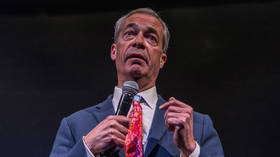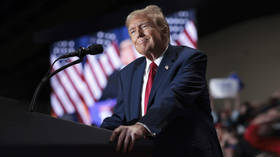West ‘provoked’ Ukraine conflict – Nigel Farage

Western powers essentially goaded Russia into launching a military operation against Ukraine by refusing to abandon plans for NATO and EU enlargement, Nigel Farage, leader of the Reform UK party, has said.
In an interview with the BBC on Saturday, Farage, known for his prominent role in the Brexit campaign and his anti-immigration views, recalled that he warned of a potential war in Ukraine as early as 2014, following the Western-backed coup in Kiev.
”It was obvious to me that the ever-eastward expansion of NATO and the European Union was giving this man [Russian President Vladimir Putin] a reason… to say ‘they are coming after us again’ and go to war,” he said.
While Farage claimed it was Putin’s “fault” that Russia sent troops into Ukraine, he insisted that “we’ve provoked this war.”
Farage’s comments have sparked outrage from UK officials, with Home Secretary James Cleverly claiming the Reform UK leader was “echoing Putin’s vile justification for the brutal invasion of Ukraine.”
In September 2014, while fierce battles were raging in Donbass, Farage denounced what he called the West’s “unnecessary provocation” of Moscow, arguing that it stemmed from NATO and the EU’s aspiration to absorb Ukraine. “The moral of the story is, if you poke the Russian bear with a stick, don’t be surprised when he reacts,” Farage said at the time.
On February 24, 2022 – the day Russia sent troops into Ukraine – Farage acknowledged that Putin “has gone much further than I thought he would,” while emphasizing that “it made no sense to poke the Russian bear with a stick.”
Russia has for years voiced concerns about NATO expansion towards its borders, seeing it as an existential threat. Members of the US-led military bloc agreed in 2008 that Ukraine would eventually join, but gave no specific timetable. Kiev officially declared NATO membership a strategic objective in 2019. In 2022, after four of its former regions voted to join Russia, Ukraine submitted an application to join the bloc.
Moscow has repeatedly stated that Ukraine’s neutral status is one of the key goals of its military campaign. The issue loomed large at the Istanbul peace talks in the spring of 2022, which both Russian officials and David Arakhamia, the head of Ukraine's delegation at the negotiations, have said were derailed by then-UK Prime Minister Boris Johnson, who allegedly advised Ukraine to keep fighting. Johnson has disputed this version of events.













